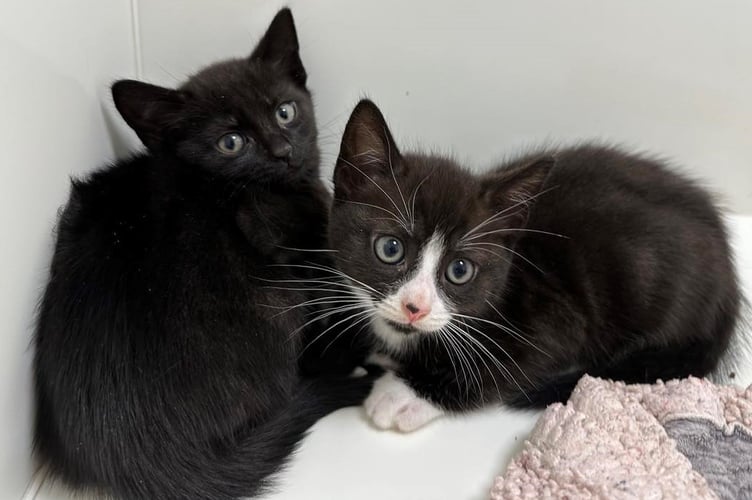Not another coronavirus!
Sadly, yes, there is another deadly virus with the potential to kill hundreds of thousands … but, this time, it’s one that affects cats.
An outbreak of feline coronavirus (feline infectious peritonitis, or FIP) has already killed an estimated 300,000 cats in Cyprus this year, and there are fears that it could become a world-wide problem within a matter of weeks.
Fortunately, though, this is a strain of coronavirus that does not spread to humans.
Symptoms of FIP include fever, abdominal swelling, energy loss, poor appetite and unusually aggressive behaviour, with kittens and young cats most susceptible to infection.
The virus infects white blood cells, and spreads through a cat’s body triggering an inflammatory reaction in the abdomen, kidneys and brain. FIP is treatable, but the antiviral drugs needed, and which are currently available, cost hundreds of pounds per treatment.
Scientists at the University of Edinburgh have called this the largest outbreak ever seen ‘in living or reported history’, and it has already spread to Cyprus’ neighbours – Turkey, Lebanon and Israel.
It is difficult to quantify the exact number of fatalities due to the large number of feral and stray cat populations in these countries, but the virus is undoubtedly a virulent one.
The scientists have carried out genome sequencing to establish whether the virus has mutated, and they are trying to establish whether the Covid-19 pandemic has indirectly led to a new strain of coronavirus.
Cats were, and can be, infected by Covid-19, which may have produced antibodies that have driven the evolution of existing feline coronaviruses.
The British Veterinary Association (BVA) is advising that cats being imported from ‘at risk’ countries should be tested before travel, and not moved if they test positive.
It seems almost inevitable that the virus will spread across Europe, but the rate of transmission will be slower in countries that have fewer feral and stray cats.
Cyprus is a popular holiday destination for the British and is home to thousands of ex-pats who travel back and forth.
It is known as the ‘island of cats’ with an estimated cat population of a million felines, and there is archaeological evidence that cats were domesticated there more than 9,000 years ago.
Whilst importing infected cats is likely to be the predominant factor in the virus coming to the UK, the BVA is advising people who visit ‘at risk’ countries to avoid touching cats, and to disinfect their shoes and suitcase wheels before they leave.
This is because they may have accidentally trodden in cat feces, which is the medium that transmits the virus.
The cats in our cattery are health checked and vaccinated against the most common cat diseases, and they are all neutered.
Young kittens, such as two-month-old Hale-bop and Lemmon, are re-homed with neutering vouchers so that their new owners can have the procedure undertaken at no cost to them.
This is usually when the kittens are five months old, and a healthy weight.
Our cats and kittens also leave us with four weeks’ free pet insurance, with immediate cover for illness or injury.
Hale-Bopp and Lemmon (who are both boys) were born here at Ard Jerkyll, and their feral mum has now been released.
They are a little nervous when they first meet new people, but once they become settled and secure in a new home environment they will just grow and grow in confidence.
We think they would be best suited to a quieter home, where there are no young children or boisterous pets.
The kittens will entertain themselves and so, unlike puppies, can be left whilst their owners go to work … and then when they return after a long day in the office, the kittens will provide the very best ‘home entertainment’.


.jpeg?width=209&height=140&crop=209:145,smart&quality=75)
.jpeg?width=209&height=140&crop=209:145,smart&quality=75)

Comments
This article has no comments yet. Be the first to leave a comment.